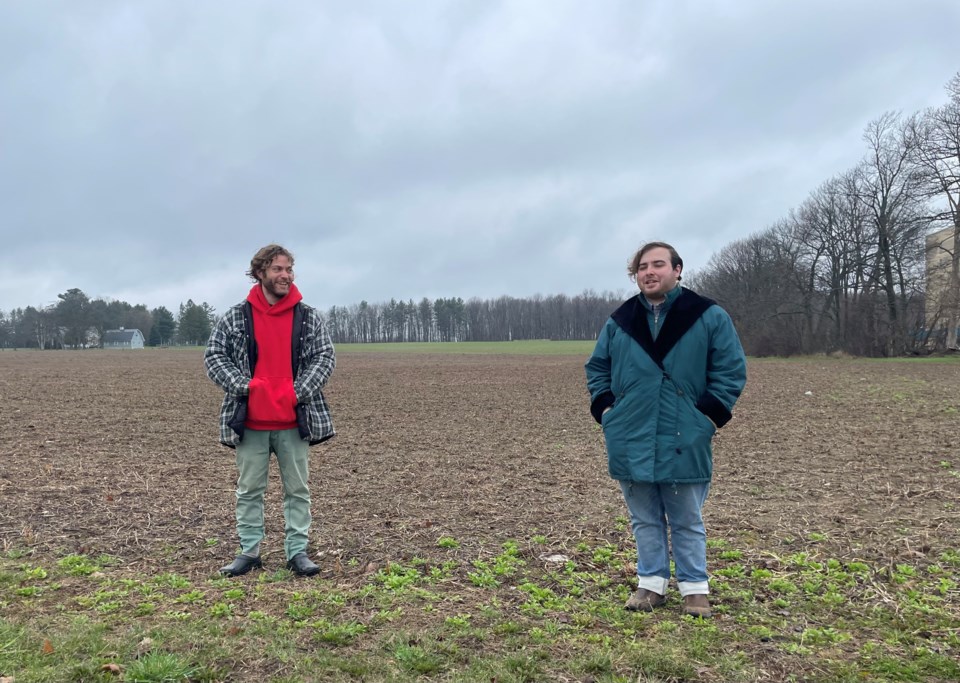As Orillia continues to grow and develop the land within its borders, a student-led petition is calling on Lakehead University to protect 20 acres of campus farmland as a multi-purpose agricultural space for students, faculty, and community members alike.
With several hundred supporters so far, the petition calls for the university’s board of governors to protect its northwest portion of farmland ‘in principle,’ and to consult both the on- and off-campus communities in developing an agricultural space focused on research, education, and sustainable agricultural practices.
Jacob Kearey-Moreland, a Lakehead student who helped spearhead the initiative, stressed the importance of protecting agricultural space – particularly in Orillia and southern Ontario.
“We're gonna have a much denser city going forward,” he said. “That's gonna mean even more people in less space, and that's what makes protecting this farmland so significant, because it’s accessible.”
According to the Ontario Federation of Agriculture, Ontario loses 175 acres of farmland to urban development every day.
“Canada has like 60 million acres of farmland, so it would take thousands of years to run out,” Kearey-Moreland said. “However, the issue is that this is prime farmland, and we don't have 60 million acres of prime farmland. Most of the prime farmland is in southern Ontario, and that's where we're losing 175 acres per day.”
Kearey-Moreland said the farmland could potentially include a community greenhouse and kitchen, multi-acre, production oriented plots, pollinator plots, and community and individual allotments, and that the project could ultimately contribute to food security in the city.
“We envision there to be acres of production-oriented plots where we could be producing a ton of food, a lot of which could just go straight to the food bank and emergency food programs around town, (and some) could be sold to the cafeteria, (which is) otherwise importing food, to help offset the costs,” he said.
Beyond producing food for both the university and the community, Kearey-Moreland said the proposed agricultural space could be used for a variety of educational and research opportunities, as well.
“We're not talking about a farm where we're just going to produce food,” he said. “This is going to be a 20-acre classroom that, if well designed, every department, every class could participate in some meaningful way.
“We would have outdoor classrooms and theatres in this space, but also through various infrastructure and buildings, there would be opportunities for classrooms to happen there, and then it's not just a classroom but it's also a laboratory,” he said. “It's a place for the sustainability sciences people to go out there and do field research.”
As Canada works towards reconciliation with its Indigenous peoples, Kearey-Moreland suggested the farmland could incorporate numerous land-based learning opportunities and Indigenous cultural components.
“I think as part of truth and reconciliation, we need to really re-envision how we relate to each other and relate to the land,” he said. “Imagine there was a 20- acre, immersive site that had significant Indigenous components in the design and implementation of the site, and in the culture and the learning environment.”
The petition cites the success of urban farms at the University of Guelph, Trent University, and Bishop’s University in its call to the university.
Kearey-Moreland said the university has previously considered projects, such as a sports dome and baseball complex, for its adjacent farmland though none have come to fruition as of yet.
In a statement, the university said that “Administration is aware of the petition and student interest in sustainable agricultural initiatives, and look forward to continuing its discussions with the campus’s student leaders.”
The university did not respond to a request to discuss the idea and the petition.



